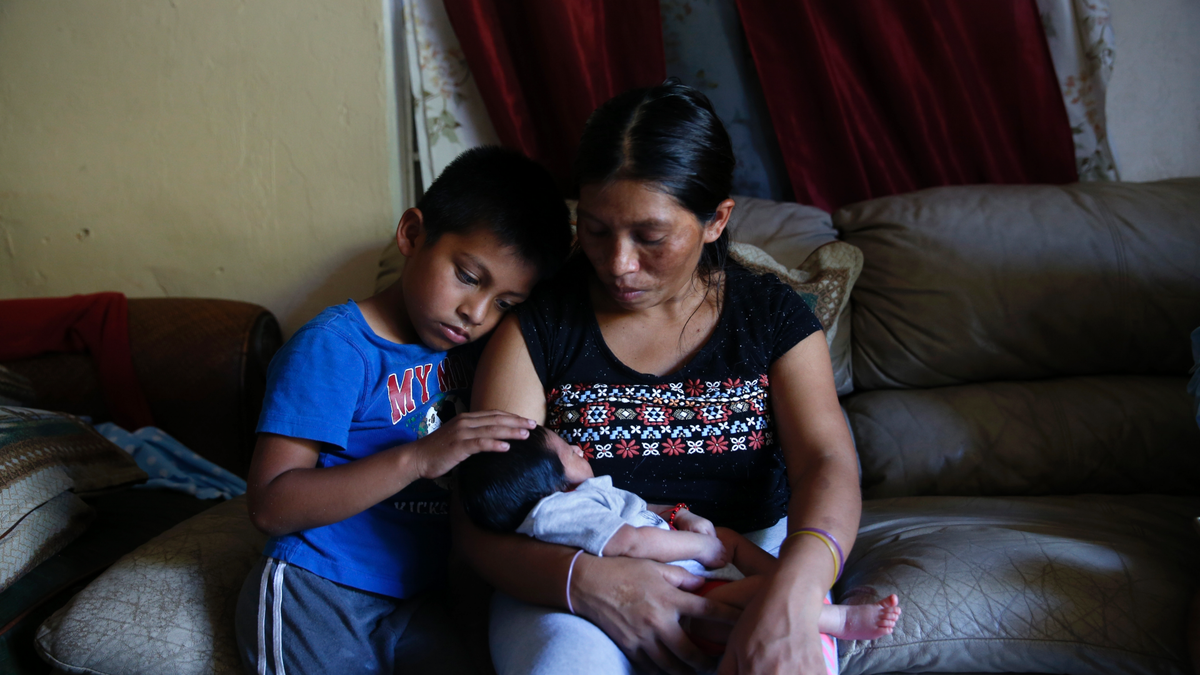
TALLAHASSEE, Fla. – In a state built on air conditioning, millions of Florida residents now want to know: When will the power come back on?
Hurricane Irma's march across Florida and the Southeast triggered one of the bigger blackouts in U.S. history, plunging as many as 13 million people into the dark as the storm dragged down power lines and blew out transformers. Gone were the climate-controlled bubbles people relied on in Florida's sweltering heat and humidity.
In Hollywood, Florida, eight patients at a sweltering nursing home died after Hurricane Irma knocked out the air conditioning, raising fears Wednesday about the safety of Florida's 4 million senior citizens amid power outages that could last for days. Hollywood Police Chief Tom Sanchez said investigators believe the deaths at the Rehabilitation Center at Hollywood Hills were heat-related, and added: "The building has been sealed off and we are conducting a criminal investigation."
Meanwhile, millions who evacuated ahead of the storm are now returning to homes without electricity. They could face days or even weeks with little to ease the late-summer stickiness. By Wednesday afternoon, state emergency management officials estimate that one third — or 6.4 million — residents remained without power in the Sunshine state.
"Power, power, power," Florida Gov. Rick Scott said recently. "The biggest thing we've got to do for people is get their power back."
The Irma blackout is still much smaller than a 2003 outage that put 50 million people in the dark. More than 50,000 utility workers — some from as far away as Canada and California — are responding to the crisis, according to the association of the nation's investor-owned utilities.
"The industry's Irma response is one of the largest and most complex power restoration efforts in U.S. history," said Tom Kuhn of the Edison Electric Institute, a lobbying group that represents all U.S. investor-owned electric companies. "Given the size and strength, infrastructure systems will need to be rebuilt completely in some parts of Florida."
The state's largest utility, Florida Power & Light, said Irma caused the most widespread damage in company history, affecting all 35 counties in its territory — most of the state's Atlantic coast and the Gulf Coast south of Tampa.
The company on Tuesday said it expected to have the lights back on by the end of the weekend for the Atlantic coast. Customers in the hard-hit neighborhoods in southwest Florida, where damage was much more extensive, were expected to get power restored within 10 days.
While acknowledging the public's frustration, utility officials said they are getting power back on faster than they did after Hurricane Wilma hit the state 12 years ago. The company said it had already restored service to nearly 1.8 million customers.
Any disaster that wipes out electrical service hits especially hard in the South, where tens of millions of Americans rely on the cocoon of comfort provided by air conditioning. Without it, many cities could barely exist, let alone prosper.
There were signs on social media that some people were growing angry and tired of waiting. Others steeled themselves for an extended period without electricity.
Standing in front of a produce cooler at a reopened Publix grocery store in Naples, Missy Sieber said the worst thing about not having electricity is not having air conditioning.
"It's miserably hot," she said. "I don't mind standing in line here."
There's no immediate cool-off in sight. The forecast for the coming week in Naples and Miami, for instance, calls for highs in the upper 80s (lower 30s Celsius) and lows barely falling below 80 degrees (27 degrees Celsius). Humidity will hover above 70 percent.
At Century Village in Pembroke Pines, more than half of the residential buildings — 77 of 144 — were still without power Wednesday afternoon. Rescue crews from several area municipalities were going door to door in 94-degree (34 Celsius) heat to perform welfare checks, and a massive water, ice and meal distribution plan was already enacted.
Two generator incidents have occurred in Hernando County. On Monday, a home was destroyed when a generator caught on fire. On Wednesday a generator left running inside a garage killed one dog and seriously injured another from carbon monoxide poisoning.
In Georgia, more than 510,000 homes and businesses remained without power Wednesday. Georgia Power said 95 percent of its customers should have electricity restored by Sunday night, except for homes or businesses too damaged to be reconnected.
Irma followed Texas' Hurricane Harvey, which created widespread outages. Some three weeks after Harvey, at least 10,700 customers in that state remained without power. Many of those were homes and businesses that will have to undergo repairs before they are ready to receive electricity again.
Back in Naples, Sieber and her husband and 9-year-old son have been using a generator to run a small air conditioner in a bedroom at night.
"It makes you count your blessings," she said.
___
Associated Press Writers Adriana Gomez Licon in Miami and AP researcher Rhonda Shafner in New York contributed to this report.
___
HURRICANE NEWSLETTER — Get the best of the AP's all-formats reporting on Irma and Harvey in your inbox: http://apne.ws/ahYQGtb

